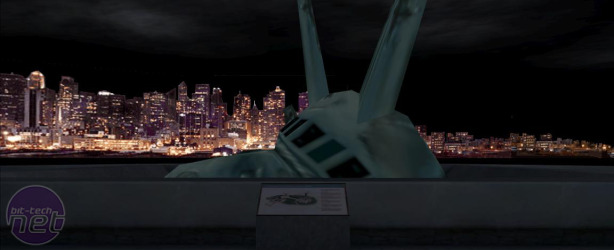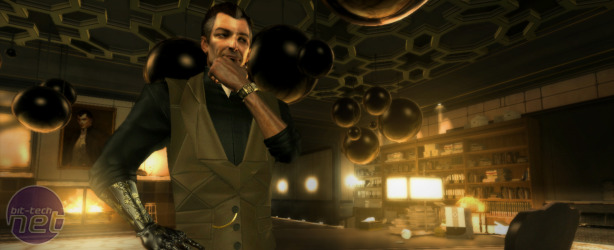
9/11 and the Games Industry
Only very recently has technology reached a point where videogames can truly evoke the horror of being in a city during the event of its destruction, and it’s interesting that one of the first games to capture this atmosphere – Crysis 2 – is set in New York. Even a decade after 9/11, the decision to set Crysis 2 in New York was still seen as a bold and possibly foolish move for Crytek.Crytek was careful to assure gamers of their sensitive treatment of the topic, however, and this treatment is clear to see in both the general and specific aspects of the game’s design.
For starters, the game is primarily about a race of squid-alien-things that have come to claim the Earth, rather than extremists. More specifically, when the fighting in the city escalates and buildings begin to crumble, they do so in a manner which is very different to the twin towers. Attentive players will note that all the buildings which collapse in Crysis 2 either do so forward or at an angle, and not vertically downward as was the case with the World Trade Centre.
Nonetheless, there are moments in the game where the similarities to 9/11 are undeniable, particularly when an alien spacecraft crashes into the back of a skyscraper. And yet it does not offend, and has caused no controversy. The reason? The game is extremely well made. The original Crysis was a technological marvel, but the second coming carefully crafted that raw tech into a powerful and yet harrowing depiction of an alien invasion of New York. Any potentially controversial similarities to 9/11 were vastly eclipsed by the game’s creative vision and its focus on a very different type of fiction.
Ultimately, the response to 9/11 by the games industry over the past decade highlights gaming’s standing within society as a mode of social commentary - it doesn't have one. Of course, gaming is now capable of such commentary where it may not have been ten or even five years ago, but there remains a chance of such an attempt being misconstrued by mainstream media as exploitative or seeking cheap thrills. So, gaming remains silent, and that it does so is worthy of both respect and scrutiny.
There is also one, final reason for gaming’s quiet stance on 9/11; it simply doesn’t need to address the subject. Frankly, films and novels have covered the ground more than sufficiently. What’s more, gaming tends to look forward more than it does back.
The original Deus Ex, with its dark envisioning of a conspiratorial future, covered many of the complexities of the War on Terror before it even happened; even famously lacking the twin towers from its New York skyline. Originally omitted because of a texture problem, Ion Storm then explained away the issue by claiming that the World Trade Centre had, like the Statue of Liberty seen in the opening level, been attacked by extremists.
Here in 2011, gaming has other fish to fry. The recent release of Deus Ex: Human Revolution, for example, reiterates gaming’s capacity for forward thinking and intelligent debate. Its deep and erudite discussion on the relationship between advancing technology and what it means to be human will be of far greater relevance to society in the coming decades than what happened in New York ten years ago.

MSI MPG Velox 100R Chassis Review
October 14 2021 | 15:04











Want to comment? Please log in.